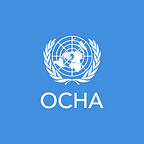“Tell the world to end the violence” Syrian women and girls tell UN leader visiting Turkey.
In November 2017, the Assistant Secretary-General (ASG) for Humanitarian Affairs, Ursula Mueller, travelled to Gaziantep and to Kilis in Turkey near the border with Syria. She went to witness for herself the challenges involved in delivering aid to Syria from Turkey, as well as to meet with Turkish refugee hosts and displaced Syrian women and children as they recover and rebuild their lives.
Cross-border humanitarian aid from Iraq, Jordan and Turkey into Syria is a lifeline for millions of people. Each month this year, UN-led convoys delivered medicine, food, and shelter, among other essential items, to almost 1 million people. These cross-border operations, when combined with international and national NGO efforts, reach almost 2.8 million people in Syria each month. “Conditions are very difficult back in Syria,” said Mezin Ibrahim, head of Al Resala Foundation, a Syrian NGO. “There isn’t enough shelter to house them all. We are running out of supplies. We don’t have even the very basics.”
Humanitarian needs in Syria remain immense: 13.1 million people in Syria and 5.3 million Syrian refugees need emergency relief and protection. Since 2014, some 16,844 trucks have delivered aid to Syrians. Each truck is vetted by UN and third-party monitors in line with the requirements of Security Council resolution 2165 (and its three subsequent renewals). Monitors check contents to ensure they are only for humanitarian use; track aid distributions to ensure they are going to the right people; and follow-up with beneficiaries once the distributions are complete.
The Deputy Governor of Kilis, Mr Fehmi Sinan Niyazi, facilitates cross-border aid operations, and ensures Syrian refugees are welcomed in Turkey. Kilis is now home to more Syrians than Turkish people. Overall, more than 3.3 million Syrian refugees live in Turkey. Syrian refugees living in Kilis are integrated into the community and they are given the right to work and attend to school.
Lynn, aged 8, fled Aleppo with her mother and younger brother, who she is hugging here. Counsellors have been working with both children to try to process some of their experiences through drawing and play.
Lynn showed Ms. Mueller a picture of her home in Aleppo being bombed, and her family fleeing.
Al Resala Foundation runs projects in Kilis and Gaziantep in Turkey, and in Aleppo and Raqqa in Syria, with activities spanning psychosocial support, education, cash grants and livelihoods training. Thirteen-year-old Rayan’s dream was cut short when a landmine exploded next to her house in Aleppo, killing her 9-year-old sister, and destroying her father’s legs. She too, was injured by the landmine. Her father remains stuck in Aleppo, so Rayyan fled with only her mother Sarah. They arrived in Kilis with nothing but the clothes they were wearing, but they now are supported by the Al Resala Foundation.
These two sisters, Zahra and Lamiyah, from Aleppo, are both practicing artists in Kilis. Here, in front of their work at an art show run by Al Resala, Zahra told the ASG: “My dream is to go back home to exhibit my art in Aleppo next year,” said one of the sisters.
Basma, aged 4, spends a lot of time at a beauty school training centre where her mother is learning to apply make-up and style hair. They both fled Aleppo after Basma’s father was killed by a bomb. The beauty school is one of several training projects run by NGO, Kareemat, in Kilis. Naturally bold, Basma strode up to Ms. Mueller and proclaimed: “I am not a number. Where is my right as a child to return home?” Basma also attends a day-care centre in the basement, supported through the profits that the women earn.
Before leaving Turkey, ASG Mueller held a press conference in Gaziantep to communicate her main messages from the mission.
“Here in Turkey, I witnessed the amazing work that the Turkish Government, host communities and humanitarians are doing,” she said. I want to repeat the powerful message that I heard from brave and courageous Syrian women who simply want to get on with their lives in peace: “Tell the world to end the violence.”
